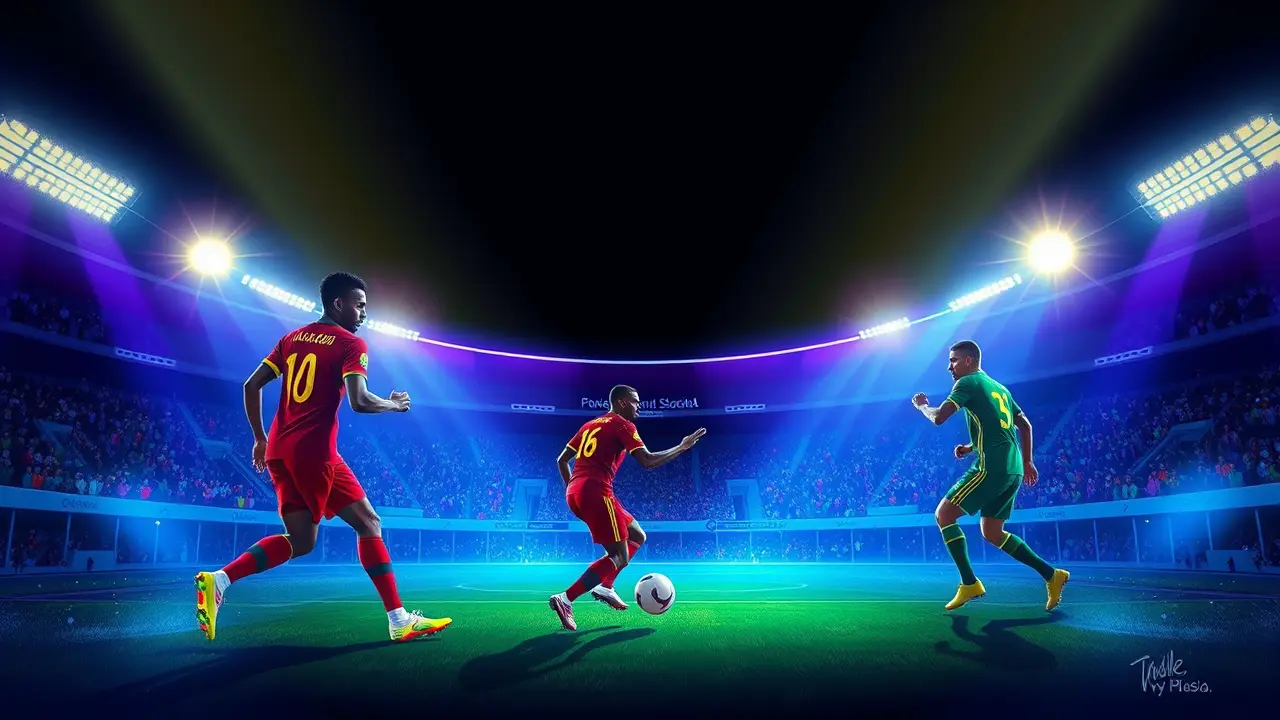Zimbabwe to rest key players against Bafana? Zim coach responds
The Moses Mabhida Stadium is set for a southern African derby that, on paper, presents a starkly different proposition for the two nations involved. For Hugo Broos’s Bafana Bafana, this FIFA World Cup qualifier is a crucial step on the path to the global showpiece, a must-win encounter to solidify their standing.For Michael Nees’s Zimbabwe, the mathematics are brutally simple: bottom of the group without a single victory to their name, their journey to the 2026 World Cup is already over. In such a scenario, the conventional footballing logic, the kind you’d dissect with expected goal models and squad rotation analytics, would suggest an opportunity for experimentation.Why not blood the next generation, test fringe players under the intense pressure of a high-stakes match, and use the dead rubber as a formative crucible for the future? It’s a tempting narrative, one that Nees, the German tactician at the helm of The Warriors, was directly confronted with in his pre-match press conference. His response was not just a rejection of the idea; it was a profound statement of sporting principle, a declaration that for Zimbabwean football, every match is a referendum on its very soul.‘We have a duty as sportsmen to take this game serious,’ Nees asserted, swiftly pouring cold water on any suggestions of treating this as a laboratory. ‘We cannot start to experiment now like in June [friendlies], giving players tests.It would be interpreted very quickly in a certain way. ’ This ‘certain way’ is the unspoken specter haunting Zimbabwean football—a history Nees himself described as ‘a little bit rocky,’ a euphemism for the institutional challenges, political interference, and periods of turmoil that have often overshadowed the nation’s raw, prodigious talent.He revealed that this very subject had been discussed ‘in length inside the association,’ a telling admission that this is more than a simple team selection; it’s a strategic decision about reputation, pride, and the long-term project of restoring credibility. To field a weakened team against a resurgent South Africa, a neighbor and historic rival, would be to send a message of surrender, an admission that the jersey no longer carries the weight it should.It’s a lesson in the intangible economics of football, where the currency is pride, and devaluation can have consequences for years to come. Nees’s subsequent comments underscored his commitment to this philosophy, pointing directly to his squad list as proof of intent.‘It's not an experimental team, you can see the squad, it's experienced players who were there for AFCON qualifiers,’ he stated, framing the upcoming clash not as a meaningless fixture but as a ‘stress test’ for his core group. The players missing, he clarified, are absent solely due to injury, not tactical rotation, reinforcing the notion that this is a full-strength contingent he believes is ‘strong enough’ for the challenge.This is where the analytical depth of the encounter truly ignites. Nees is not operating under any illusions; his praise for Bafana Bafana was unequivocal and refreshingly honest.‘We don't have to beat around the bush, South Africa is currently among the best in Africa,’ he conceded, acknowledging the formidable form of Broos’s side, which recently announced its arrival on the continental stage with a memorable third-place finish at the Africa Cup of Nations. This admission makes Nees’s stance even more significant.He is not setting up his team for a backs-to-the-wall, hope-for-a-lucky-break performance. He is mobilizing his most experienced warriors, the veterans of AFCON campaigns, to face one of Africa’s elite head-on.It’s a bold, almost romantic, footballing gambit reminiscent of a legendary underdog refusing to park the bus, instead choosing to fight fire with fire. The psychological dimension cannot be overstated.For the Zimbabwean players, this match is a chance to reclaim a measure of pride from a qualifying campaign that has yielded little but disappointment. A positive result, or even a fiercely competitive performance against a top-tier side, can serve as a foundational block for the next cycle, a memory of resilience to build upon.For the fans, it’s an affirmation that their team, regardless of the standings, will never stop fighting. Conversely, for South Africa, this presents a unique and potentially treacherous challenge.They are expected to win, to dispatch a team already eliminated. But they will be facing a Zimbabwean side with zero pressure and everything to prove, a dangerous combination that has undone many a favorite throughout football history.Nees’s strategy effectively removes the ‘nothing to play for’ excuse from his players and places the burden of expectation squarely on Bafana Bafana’s shoulders. The tactical battle will be fascinating.Will Zimbabwe, freed from the strategic constraints of a points chase, play with a liberated, expressive style? Or will they adopt a disciplined, compact shape designed to frustrate their technically superior neighbors? Nees’s selection of experienced campaigners suggests a game plan built on organization, game management, and exploiting set-pieces—the traditional weapons of a determined underdog. In the grand, often cynical calculus of modern football, where player minutes and future planning often trump the sanctity of a single match, Michael Nees’s unwavering stance is a powerful reminder of the sport’s core ethos.He is prioritizing duty over development, honor over experimentation, and the immutable value of competitive integrity. This is more than a team selection; it’s a statement that for Zimbabwe, the final whistle on their World Cup dream does not mean the end of the fight. The result on the scoreboard at the Moses Mabhida will be one metric, but the true measure of success for The Warriors will be the respect they earn in the process, a currency that remains invaluable long after the qualifying groups are finalized.
It’s quiet here...Start the conversation by leaving the first comment.
© 2025 Outpoll Service LTD. All rights reserved.
